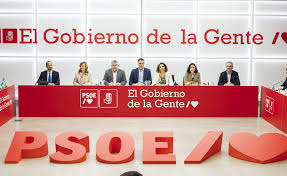A simple introduction to the political system in Spain
Spain is classified as a democratic constitutional monarchy. This means that the ruling monarch acts as the largely ceremonial head of state.
The democratically elected prime minister, meanwhile, acts as the head of the national government.
The current political system in Spain has been in place since La Transición. This was a period in the late 1970s that saw the country transition from dictatorship to democracy under the former king, Juan Carlos I, after decades of General Francisco Franco’s military rule.
This transition involved the enactment of the Spanish constitution in 1978. This serves as the framework for the current national and regional political systems.
The current head of state is King Felipe VI., who came to the throne in 2014 following the abdication of his father, Juan Carlos.

The current leader of the national government is Pedro Sánchez, head of the Spanish Socialist Workers’ Party (PSOE). He became Prime Minister in June 2018 as the head of a coalition government.
Political parties in Spain
There are a number of political parties in Spain, and many of them operate at national, regional, and local levels. Here is a brief overview of the main political parties in Spain:
- Partido Socialista Obrero Español (PSOE): Founded in 1879 and known as the Spanish Socialist Workers’ Party in English, PSOE is the oldest party currently active in Spain. It has been in government longer than any other political party in modern democratic Spain. The party has a largely progressive ideology. It is led by Pedro Sanchez.

- Partido Popular (PP): Formed back in 1976 by Manuel Fraga Iribarne, a Spanish professor and politician under Franco’s dictatorship, the Popular Party (in English) has a liberal-conservative, Christian-democratic ideology. The party was in power until 2018 and is currently in opposition and led by Alberto Nuñez Feijoo.

- Unidas Podemos (UP): This alliance of smaller progressive parties was created in the run-up to the 2016 general election. These include Podemos, Izquierda Unida, and other smaller parties. The party has been in the governing coalition with PSOE since the 2020 general election. UP is currently led by Yolanda Díaz Pérez.

- Ciudadanos (Cs): Known as Citizens in English, this party came into being in Catalonia back in 2006. It is a liberal-conservative, pro-European party. Since then, Ciudadanos‘ fortunes have varied significantly. The current party president is Inés Arrimadas.
- Vox: Former members of the Partido Popular founded this anti-immigration, nationalist party in 2013. It has risen in popularity over recent elections, both on a national and regional level. Vox is led by Santiago Abascal.
Local politics in Spain
Local government in Spain operates at the municipal level, with residents electing local councillors who then choose a mayor (alcalde).
The mayor then appoints a board of governors for the local municipality. In Spain, local municipalities are responsible for the local police, traffic policy, urban planning, social services, and certain taxes.
With thanks to www.expatica.com